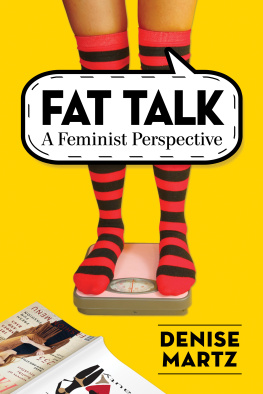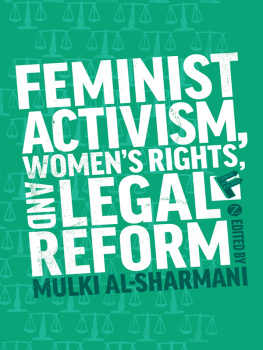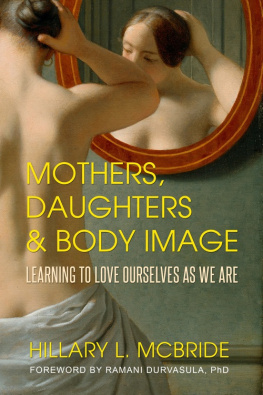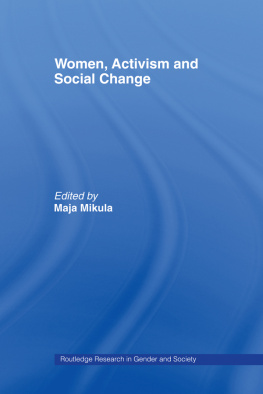Denise Martz - 10 May
Here you can read online Denise Martz - 10 May full text of the book (entire story) in english for free. Download pdf and epub, get meaning, cover and reviews about this ebook. year: 10 May 2019, publisher: McFarland, genre: Science. Description of the work, (preface) as well as reviews are available. Best literature library LitArk.com created for fans of good reading and offers a wide selection of genres:
Romance novel
Science fiction
Adventure
Detective
Science
History
Home and family
Prose
Art
Politics
Computer
Non-fiction
Religion
Business
Children
Humor
Choose a favorite category and find really read worthwhile books. Enjoy immersion in the world of imagination, feel the emotions of the characters or learn something new for yourself, make an fascinating discovery.
- Book:10 May
- Author:
- Publisher:McFarland
- Genre:
- Year:10 May 2019
- Rating:5 / 5
- Favourites:Add to favourites
- Your mark:
- 100
- 1
- 2
- 3
- 4
- 5
10 May: summary, description and annotation
We offer to read an annotation, description, summary or preface (depends on what the author of the book "10 May" wrote himself). If you haven't found the necessary information about the book — write in the comments, we will try to find it.
10 May — read online for free the complete book (whole text) full work
Below is the text of the book, divided by pages. System saving the place of the last page read, allows you to conveniently read the book "10 May" online for free, without having to search again every time where you left off. Put a bookmark, and you can go to the page where you finished reading at any time.
Font size:
Interval:
Bookmark:


McFarland & Company, Inc., Publishers
Jefferson, North Carolina
LIBRARY OF CONGRESS CATALOGUING DATA ARE AVAILABLE
BRITISH LIBRARY CATALOGUING DATA ARE AVAILABLE
e-ISBN: 978-1-4766-3584-2
2019 Denise Martz. All rights reserved
No part of this book may be reproduced or transmitted in any form or by any means, electronic or mechanical, including photocopying or recording, or by any information storage and retrieval system, without permission in writing from the publisher.
Front cover images 2019 Shutterstock
McFarland & Company, Inc., Publishers
Box 611, Jefferson, North Carolina 28640
www.mcfarlandpub.com
To my partnerJohn Paul Jamesonwho shares my passion for science and social justice and encourages me to say what I need to say. He not only tolerated my obsessive writing style, but held my hand along the way.
First I would like to thank my parents, Peggy and Ron Martz, who have provided me with unwavering support across my career and in my life. I wish to thank my sons Christian Ludwig and Forrest Ludwig for their enduring love and ability to make me laugh. It has been a pleasure seeing you grow and being your Mom.
I could not have pursued this line of research without the brilliant colleagues who have made collaboration productive and fun: Lisa Curtin, Doris Bazzini, Rose Mary Webb, Amy Galloway, Courtney Rocheleau, Lucinda Payne, and Sandy Gagnon. There have been numerous students who have been willing to choose honors and master's thesis topics on fat talk that allowed me and my colleagues to mentor them while they learned and contributed to this body of research: Amy Barwick, Delvon Blue, Lauren Britton, Jennifer DeStephano, Amanda Driver, Jordan Ellis, Mallory Fiery, Lauren Francis, Christine Mikell, Cassidy Miles, Madison Morsch, Anna Petroff, Courtney Rogers, Crystal Thornhill, Brooke Tompkins, Kate Tucker, and Allison Warren.
During the writing of this book, I would like to thank Dr. Chris Holden for consultation on his expertise in evolutionary psychology. My research assistants offered me immense help with feedback about the readability of this work. I would like to thank Hadley Brochu, Margaret Booth, Katheryn Garwood, Jessica Hoon, Hayley Hughes, Amaka Imoh, Kelsey Lam, Elaine Mansure, Jaxeli Martinez, Tara ONeil, Katie Rigali, Sophie Pillsbury, KG Smith, Alaina Swick, Natalie Vogel, and Dominic Ysidron for all of their editing advice.
This work has been a labor of love and I would not have been able to accomplish it without all of their wonderful support.
Fat talk is defined as a communication exchange with the focus on individuals physical appearance, especially critical dialogue pertaining to body fat, weight, shape, style, or fitness. This ritualistic form of conversation is common in girls and women. On the surface, this form of discourse may seem innocent and harmless, yet closer feminist analysis suggests that fat talk compromises individuals self-esteem. Operating much like an addiction, engaging in fat talk brings some women short-term relief or reassurance, but scientific literature suggests this behavior is associated with poor body image, lower self-esteem, and eating disorders when done habitually. Speaking poorly about oneself to others reinforces those critical attitudes about the individuals identity. How will a woman personally rise and achieve equality in a culture that fosters her own fat talk? Feminist theory extends feminist politics into scholarship and aims to help scientists understand and remedy gender inequality in our society. Feminists should be very concerned about fat talk, as this toxic dialogue is a way that women have become their own private enemies.
While fat talk primarily focuses on oneself, another modern adversary for women involves bullying about physical appearance. Body snarkingalso called fat shamingis when people say, print, or post public critiques of womens appearance on social media, often anonymously. Snarking women about their appearance, and whether or not they adhere to our cultures gender role expectations, strips many targeted victims of their perceived influence, effectiveness, and power. Snarking is a symptom of a larger form of sexism and misogyny in U.S. culture. How are women, collectively, to rise and achieve social and political equality in a society that supports this nasty form of bullying towards women? From a feminist perspective, people who cut other women down through body snarking are also womens worst enemies. This book will apply feminist theory to extant scientific research to help readers understand womens fat talk and why women are the victims of body snarking. These behaviors are understandable considering human evolution and modern Western culture. However, they are not excusable! My goal is to inspire a feminist agenda to reduce both of these toxic forms of communicationour feminine enemies.
This book will review and analyze the origins of fat talk and body snarking. Such dialogue taps into a historic dispute between evolutionary psychology/biology and feminist theory scholars (i.e., the classic nature versus nurture debate). Although feminist scholars and evolutionary researchers have often disagreed politically over the others conclusions about extant scholarship on womens issues, I will propose an integrative feminist and scientific analysis of our feminine enemies. Rather than asking if fat talk and body snarking are derived from nature versus nurture, I prefer the question, How have nature and nurture interacted reciprocally across human evolution to arrive at our modern-day culture that reinforces these conversational habits? Understanding the forces that drive fat talk and body snarking will be key to determining how to formulate personal and social change. I will argue that the scientific evidence, supporting the meta-theory of evolutionary psychology, explains why human beings have evolved to value beautyespecially as an attribute in women. Evolutionary adaptations, such as the human tendency to notice another persons appearance, are products of varied environments across extensive human history. As such, fat talk for many women is commentary about ones own attractiveness or appearance, in attempts to create or manage the impression of others. Body snarking, as an aggressive form of gossip, is a method of feeling better about oneself by cutting others down. As a type of intra-sexual competition, according to evolutionary theory, body snarking reduces the social attractiveness of the target woman. This provides the aggressor with more social dominance and greater access to potential mates. Our feminine enemies function in ways that help people manage their insecurities and feel better about themselves, while damaging self-esteem and maintaining societal misogyny in the long term. Both represent the distasteful aspects of modern-day humanity.
Human evolutionary mechanisms always have environmental context; thus, I will argue that contemporary culture also has tremendous influence on the modern-day obsession with female beauty. Although appearance ideals for women have fluctuated somewhat across documented history, these standards have dependably emphasized physical images that women do not look like men, and womens beauty imperatives have consistently symbolized standards that convey female fertility to others. Ideals for men include taller height, more muscularity, and the V-shape broad shoulders and chest indicating male strength. Conversely, ideal beauty for women usually consists of the hourglass design and includes curves that indicate fat deposits in the breasts, hips, buttocks, and thighs, as well as facial features that signal youth and femininity. A feminine aesthetic that clearly signals womanhood and fertility has been key to heterosexual mate selection and effective human reproduction over time. Fertility signaling is especially important considering that humans have concealed ovulation, as opposed to the obvious and dramatic fertile estrous period like the mammals from which we have evolved. Consequently, in contemporary culture, many womens ambition to appear youthful and beautiful is a means to facilitate attention from others, including possible mates.
Next pageFont size:
Interval:
Bookmark:
Similar books «10 May»
Look at similar books to 10 May. We have selected literature similar in name and meaning in the hope of providing readers with more options to find new, interesting, not yet read works.
Discussion, reviews of the book 10 May and just readers' own opinions. Leave your comments, write what you think about the work, its meaning or the main characters. Specify what exactly you liked and what you didn't like, and why you think so.






